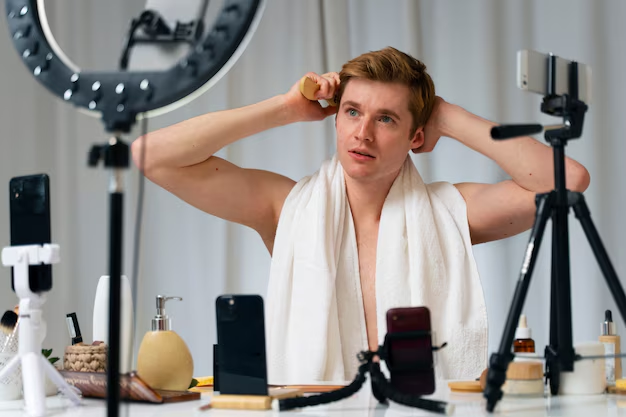Influencers Gone Wild: The Dark Side of Social Media Fame
Introduction
The rise of social media influencers has changed the digital landscape, transforming ordinary individuals into global celebrities overnight. With millions of followers, brand endorsements, and immense influence over public opinion, influencers hold significant power. However, with great power comes great responsibility—something many influencers have failed to uphold. In recent years, numerous cases of “Influencers Gone Wild” have surfaced, showcasing the dark side of fame and the pitfalls that come with internet stardom.
The Pressure to Stay Relevant
Influencers thrive on engagement, and as social media algorithms constantly change, staying relevant becomes a daunting task. Many resort to controversial tactics to maintain visibility, such as:
- Staged Pranks and Fake Stunts – Many influencers fabricate scenarios to gain traction, leading to public backlash when the truth is revealed.
- Clickbait and Misinformation – Sensational headlines and misleading content drive views but can damage credibility in the long run.
- Extreme Challenges – Dangerous and reckless challenges often gain virality but put both influencers and their followers at risk.
Scandals That Shook the Internet
Several influencers have faced significant controversies that exposed their unethical behavior. Some of the most shocking incidents include:
- Fake Charity Scandals – Some influencers have raised money under the guise of helping communities but later misused or pocketed the funds.
- Cultural Appropriation and Insensitivity – Many influencers have been called out for exploiting cultures, using offensive language, or dressing inappropriately for clout.
- Fraudulent Giveaways and Scams – Some influencers have promoted fake giveaways, luring followers into participating in contests that never result in any prizes.
- Irresponsible Endorsements – Many influencers promote products without researching their legitimacy, leading followers to purchase harmful or ineffective goods.
The Mental Health Toll of Influencer Culture
Behind the picture-perfect lives influencers portray, many struggle with anxiety, depression, and burnout. The constant pressure to produce content, engage with followers, and maintain a polished image leads to:
- Burnout and Exhaustion – Continuous content creation without breaks can take a toll on mental health.
- Anxiety Over Public Perception – Influencers are under constant scrutiny, with fear of being “canceled” looming over them.
- Comparison and Self-Esteem Issues – Many influencers feel inadequate when they compare themselves to others in their niche.
The Role of Followers and Social Media Platforms
While influencers bear responsibility for their actions, followers and social media platforms also play a part in enabling toxic behaviors. Users often reward controversial content with engagement, encouraging influencers to push boundaries further. Meanwhile, platforms profit from virality and, in some cases, fail to regulate unethical content effectively.
How to Be a Responsible Influencer
For those who aspire to be influencers, ethical practices can ensure long-term success and credibility. Some key principles include:
- Authenticity Over Sensationalism – Prioritizing genuine content over staged or misleading posts.
- Transparency in Sponsorships – Disclosing paid promotions and ensuring the endorsed products are credible.
- Respect for Cultures and Ethics – Being mindful of diverse audiences and avoiding content that may be offensive.
- Mental Health Awareness – Setting boundaries and prioritizing self-care to avoid burnout.
Conclusion
The phenomenon of “Influencers Gone Wild” highlights the ethical challenges that come with digital fame. While social media offers tremendous opportunities for self-expression and financial success, it also demands responsibility and accountability. As the influencer industry continues to evolve, it is crucial for both content creators and audiences to foster a culture of ethical influence and mindful consumption.














Post Comment